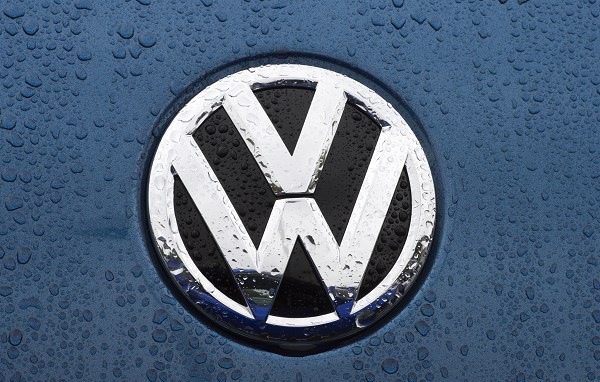Wednesday, 04 November 2015 16:36
 FRANKFURT: Shares in Volkswagen took a renewed battering Wednesday as evidence emerged that the massive pollution cheating scandal engulfing the company may also involve petrol engines, not just diesel engines.
FRANKFURT: Shares in Volkswagen took a renewed battering Wednesday as evidence emerged that the massive pollution cheating scandal engulfing the company may also involve petrol engines, not just diesel engines.
VW’s shares were once again the biggest losers on the Frankfurt stock exchange, slumping more than 10 percent in early trade. The company has lost 37 percent in market capitalisation since September when the initial cheating revelations broke.
Until now, the emissions-cheating scandal had centred on so-called defeat devices, sophisticated software fitted into diesel engines to skew the results of tests for nitrogen oxide emissions.
But late Tuesday, the auto giant said that an internal probe had uncovered “inconsistencies” on carbon emissions, as well. And these might not only affect diesel engines, but the first petrol engines, too.
According to a statement, initial estimates suggested the latest revelation could cost VW two billion euros ($ 2.2 billion).
But “a reliable assessment of the scale of these irregularities is not yet possible.”
Volkswagen has found itself at the centre of a worldwide storm and the object of both regulatory and criminal investigations in a range of countries since mid-September when it admitted to fitting 11 million of its diesel vehicles with defeat devices.
The defeat devices turn on pollution controls when cars are undergoing tests and off when they are back on the road, allowing them to spew out harmful levels of nitrogen oxide.
Initially, the allegations involved smaller 1.6 and 2.0-litre diesel engines.
But on Wednesday, the US accused the carmaker of fitting the devices on its larger 3.0 litre diesel vehicles, as well, charges VW adamantly denied.
The US authorities said VW’s high-end brands, Audi and Porsche, were also implicated.
With the latest announcement, it appears VW could have been cheating on its carbon emissions, too.
A VW spokesman said that the 1.4, 1.6 and 2.0 litre motors of VW, Skoda, Audi and Seat vehicles are affected, adding that these cars had been found to be releasing more of greenhouse gas CO2 than previous tests had shown.
At least one petrol (US: gasoline) engine is concerned, the company said.
– ‘Painful process’ –
Chief executive Matthias Mueller, who was parachuted in to steer VW out of the current crisis, said the company would “stop at nothing in clarifying the circumstances.”
“It is a painful process but we have no choice,” he said.
“The Volkswagen executive board regrets the facts established,” he said.
The inclusion of Porsche vehicles among those alleged to contain defeat devices could trip up Mueller, who was drafted in from the luxury sports car unit to replace Martin Winterkorn, who resigned at the height of the scandal.
“Volkswagen AG wishes to emphasize that no software has been installed in the 3-litre V6 diesel power units to alter emissions characteristics in a forbidden manner,” it said in a statement.
“Volkswagen will cooperate fully with the EPA (to) clarify this matter in its entirety.”
Porsche similarly denied the allegations, insisting that “all of our information was that the Porsche Cayenne Diesel is fully compliant.”
And Audi insisted that the software installed in its engines were “in line with the law.”
It argued that the so-called Auxiliary Emission Control Devices (AECD) fitted into its engines were not designed to cheat pollution tests, but maximise the engine’s performance under different driving conditions.
Carmakers were allowed to fit AECDs in cars in the United States as long as they kept the authorities informed once a year, a spokesman explained.
– Financial burden –
The scandal is hurting the finances of both VW and its parent holding company Porsche SE.
Last week, VW booked its first quarterly loss in more than 15 years as it set aside 6.7 billion euros to cover the initial costs of the scandal.
Separately, Porsche SE, the investment company which owns 32.4 percent of VW’s capital, said Tuesday’s revelations could have a “negative impact” on its own results, although it maintained its projections for 2015.
The holding company Porsche SE is controlled by the Piech and Porsche families who inherited the Volkswagen empire built by Ferdinand Porsche.






























